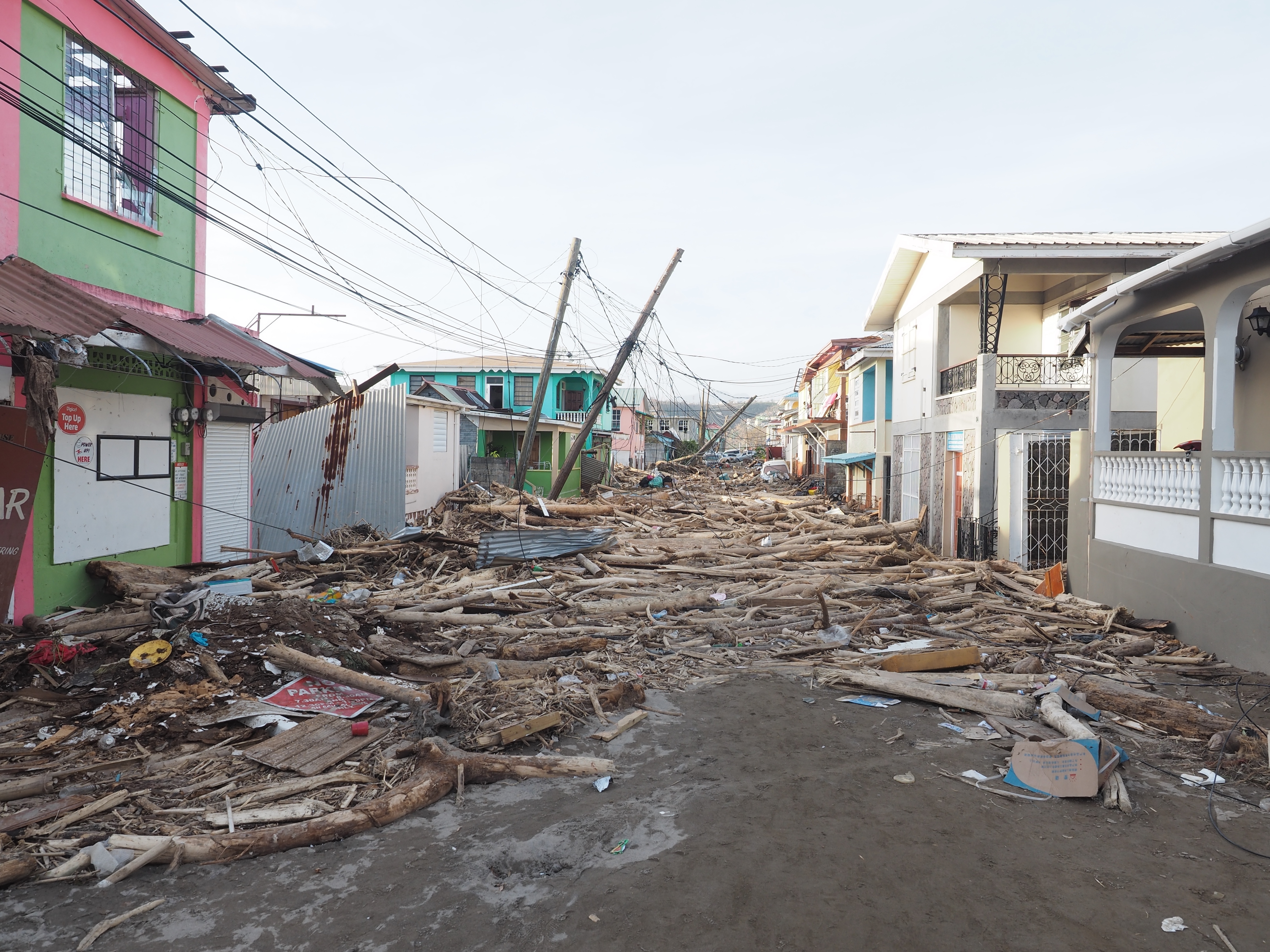The Urgent Need for Scaled-Up Climate Finance for the Caribbean
The Caribbean stands on the frontlines of the global climate crisis facing some of the most severe and costly impacts. These impacts are already eroding livelihoods, damaging critical ecosystems, and undermining economic stability across the Caribbean, a reality shared by Small Island Developing States worldwide.
An Economic Crisis, Not Just an Environmental One
For the Caribbean, the climate crisis is not a future scenario, it is a lived reality. Each extreme event reverses hard-won development gains and stretches already limited public finances. Rising seas, stronger hurricanes, and longer droughts are battering small economies that already carry some of the heaviest debt burdens in the world.
A single storm can erase years of progress. In Dominica, Hurricane Maria caused US$1.3 billion in damage and losses, the equivalent of 226% of the country's GDP. In The Bahamas, Hurricane Dorian cost over US$3 billion.
When recovery costs soar, the future is put on hold. Money meant for schools, hospitals, and jobs is diverted to rebuilding, limiting long-term growth. The rising cost of climate impacts is forcing governments to redirect scarce resources from essential services to disaster recovery, while high debt burdens leave little fiscal space to invest in the large-scale adaptation and resilience measures that are urgently needed.
Global Climate Finance Is Not Keeping Pace
Current funding is often insufficient, fragmented, and unpredictable—and access to it remains slow and complex. In 2022 climate finance mobilized for developing countries reached USD115.9 billion, but only about 40% was directed to adaptation the area of greatest need for the Caribbean and SIDS.
Even with ongoing reforms to multilateral funds such as the Green Climate Fund and Adaptation Fund, the region continues to face challenges in accessing timely, concessional, and non-debt-inducing finance. By 2045, the region will need over USD 100 billion to protect lives, livelihoods, and infrastructure from climate impacts.
Why Scaled-Up Climate Finance Is Imperative
Protecting Lives, Livelihoods, and Economies
For Caribbean nations, adequate climate finance is a matter of survival. Without predictable and accessible resources at scale, countries simply cannot build the infrastructure, early warning systems, and climate-resilient sectors needed to withstand the worsening impacts of climate change. Investing in resilience reduces long-term costs of recovery, strengthens economic competitiveness, and safeguards communities across the region.
Bridging the Adaptation Gap
Adaptation finance is the top priority for the Caribbean. The region urgently needs funding to protect its coastlines, secure water and food systems, strengthen health infrastructure, and support disaster risk reduction. Financing is also required to implement Nationally Determined Contributions and Just Transition strategies that promote sustainable, inclusive, low-carbon development. Without a significant scale-up in adaptation finance, the gap between need and available resources will continue to widen—leaving communities increasingly exposed to loss and damage.
Advancing Equity and Climate Justice
The current global model for allocating finance, based largely on GDP per capita, fails to reflect the real vulnerabilities of SIDS. Caribbean countries continue to champion a Multidimensional Vulnerability Index that better captures their hazard risks and limited capacity to respond and recover. Climate finance must be guided by the principles of fairness and justice, recognising that those least responsible for the crisis are bearing its heaviest costs.
Mobilising Partnerships and Regional Capacity
The Caribbean is seeking not just more finance, but better finance—resources that are accessible, transparent, and aligned with national and regional priorities. Strengthened coordination among multilateral development banks, development partners, and regional institutions such as CDB, the CARICOM Development Fund, the Caribbean Community Climate Change Centre, the Caribbean Disaster Emergency Management Agency, and the University of the West Indies is essential. Coordinated efforts can reduce duplication, accelerate access, and ensure that investments deliver large-scale, transformational results for the region.
The Consequences of Inaction
 The cost of inaction is measured not only in dollars but in lives and futures lost. Without adequate and timely investment in resilience:
The cost of inaction is measured not only in dollars but in lives and futures lost. Without adequate and timely investment in resilience:
- Economies will weaken as climate-sensitive sectors face repeated disruption
- Communities will be displaced as coastal zones become uninhabitable
- Public debt will deepen as governments finance recovery through borrowing
- Biodiversity will decline, undermining ecosystems that support food security
- Social inequities will widen, increasing migration pressures and regional instability
Every year of delayed investment increases the long-term cost of recovery and reconstruction. The price of inaction will far exceed the cost of prevention.
Financing Resilience and Hope
To secure a sustainable and climate-resilient future, the Caribbean needs greater access to climate finance at scale—finance that is predictable, concessional, and non-debt-inducing. This requires:
- Tripling of global climate finance flows from multilateral and bilateral sources, in line with global commitments
- Balanced allocation between adaptation and mitigation, ensuring that vulnerable regions receive the support they need to survive and thrive
- Capitalisation of mechanisms for loss and damage, ensuring swift and equitable recovery from climate-induced disasters
- Simplified and direct access to multilateral climate funds for SIDS, supported by regional platforms and mechanisms that can accelerate readiness and implementation
- Greater voice and representation for Caribbean SIDS in the governance of international climate finance institutions